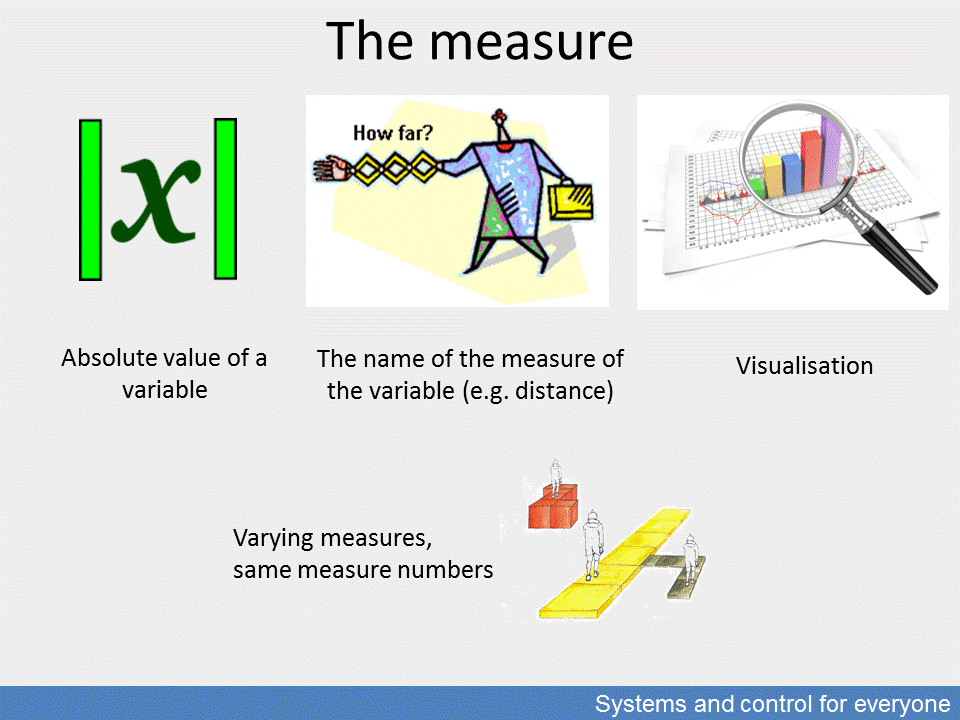

The measure
When talking about systems, measures usually relate to signals. These signal-measures provide the most important values for the operation of the system. The basic value of the measure is a well-defined boundary, such as absolute zero or freezing-point in terms of temperature, the complete absence or 100% presence of a component in terms of compounds, the data of a comparable date in terms of finances.
Absolute value means the value of a variable without any direction indication, for example a number without the negative sign or the length of a vector without phase angle.
In general, we choose a norm, i.e. a definition of assessment measure: a number or formula of measurement for the given task. This gives critical importance to the integrated norms of systems, i.e. norms which assess the full range of behaviour and observation.
In the previous example, the measure is time and its absolute value is the frequency of the tram which can be measured in days, hours or minutes depending on the nature of the service.